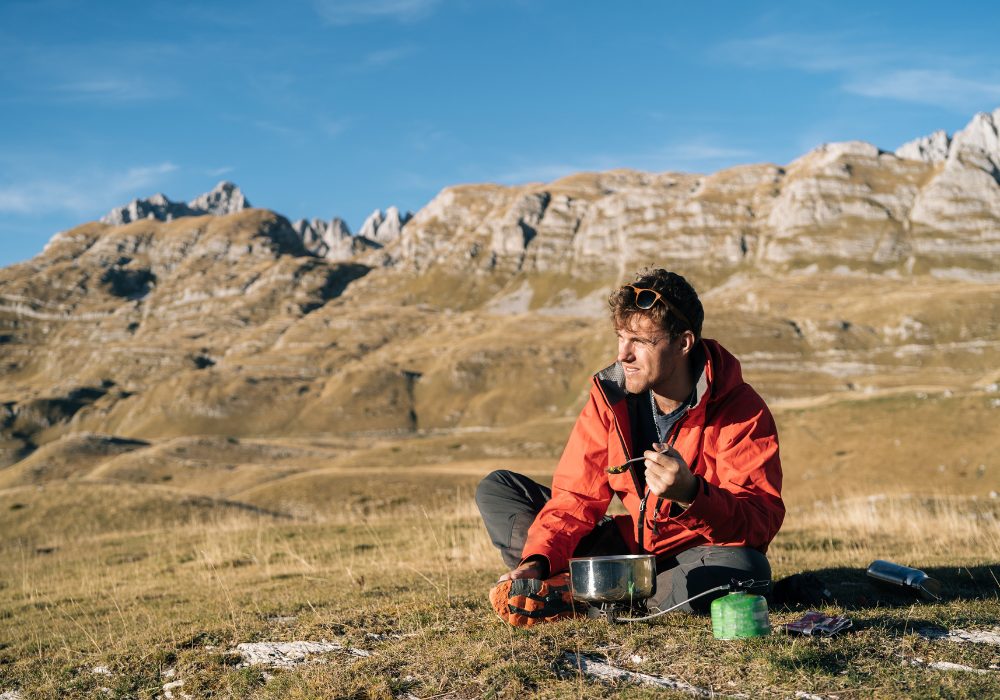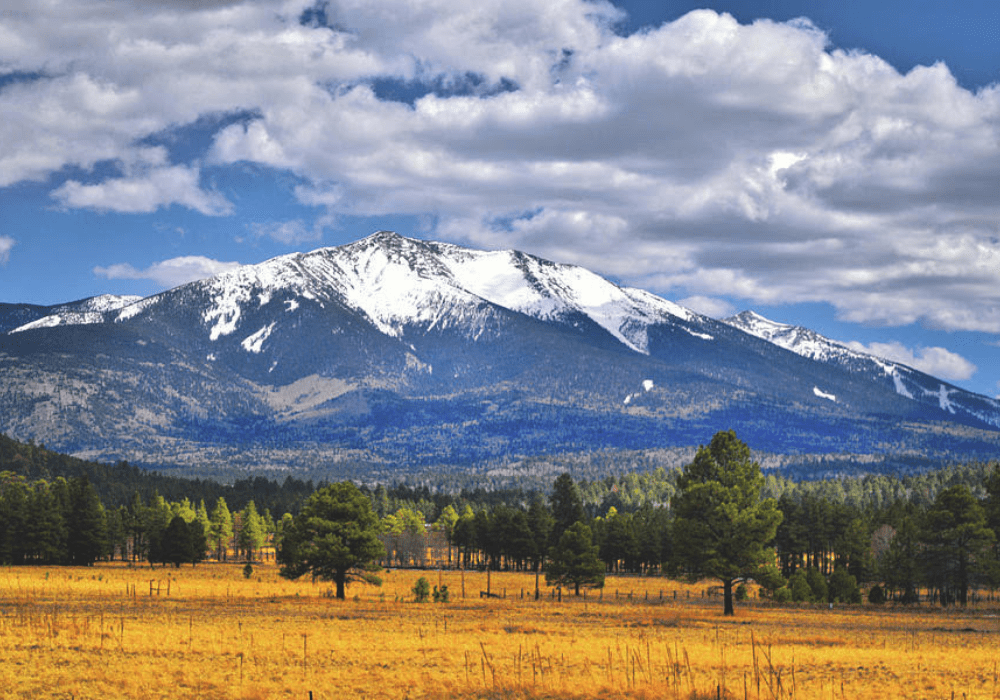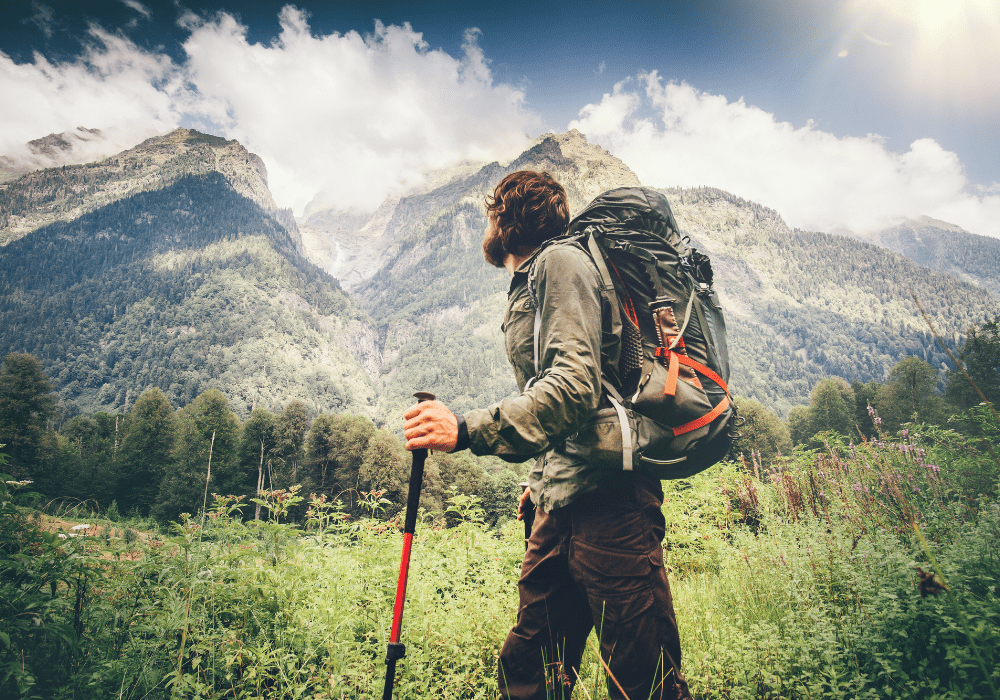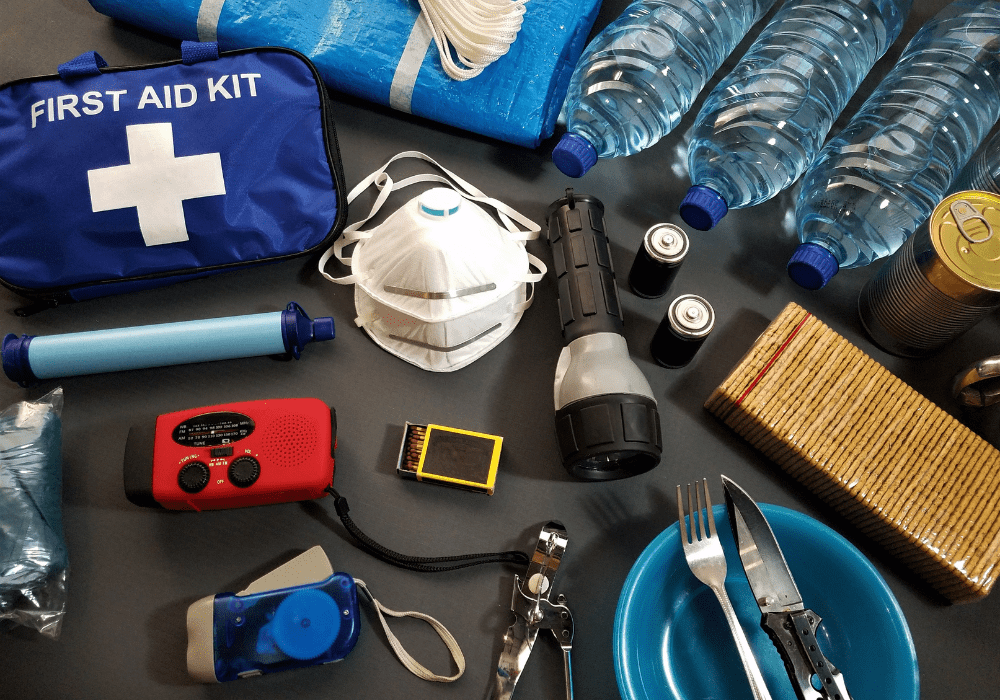
Backpacking Meal Planning 101
Estimated reading time: 7 minutes
Table of Contents
1. WHAT IS BACKPACKING MEAL PLANNING?
Are you planning on going for a hike or camping for a few days? Backpacking meal planning is one of the main factors to consider as the top priority of your to-do-list. Backpacking meal planning is a menu that you need to organize before setting on your journey and should be sufficient for the time you will be away from home.
2. WHAT TYPES OF MEALS ARE GOOD FOR BACKPACKING?
While planning on what to carry for your venture, there are various types of meals that you need to consider. The activities of your day and the time that you will spend away from home will significantly determine the variety of foods that you should include on your menu.
Choose the food types that you like without trying to convert your taste buds to foods which you do not want. While going for a hike, foods rich in calories and water are essential to fight headaches and fatigue. The nutritional value of your meals should be adequate to give you the required energy for the muscles. Although a candy bar could give you the needed nutrients, you may consider substituting it with dried fruits and nuts for more stable energy.
While backpacking meal planning, you need foods which are less bulky and lightweight to provide as much room as possible to carry more food. The backpacked meals should be easy to prepare or do not require any cooking, just to me on the safe side if your stove malfunctions.
3. WHAT ARE THE BEST FOODS TO TAKE WHEN BACKPACKING?
While backpacking meal planning, you need to consider minimizing the number of fresh foods. These foods are convenient for only a day or two, although others, like carrots, may have a longer life shelf life.
Dry foods like instant rice, drink mixes, noodles and pasta occupy minimal space in your bag and are light, especially when walking for a long journey. An inclusion of dehydrated or freeze-dried foods will give you an above-average taste, although they are relatively costly.
Canned foods in vacuum-sealed pouches are convenient as they have a long shelf life. However, you should avoid foods that come in packages of 15 ounces or more. Keep in mind that you still need to maintain a light bag on your journey.
4. WHAT IS A GOOD IDEA FOR BREAKFAST?
Backpacking breakfasts can come with a simple menu or a sumptuous spread which include coffee, meat, pancakes and eggs. You may avoid a lavish meal depending on the amount of time that you will be spending away from home by going for a lighter option of dry cereals, powdered milk or instant tea or coffee.
5. WHAT IS A GOOD IDEA FOR LUNCH?
Instead of taking prolonged lunch breaks for unpacking, cooking, and cleaning up and repacking, you might consider energy-boosting snacks which will keep you rejuvenated throughout the day. Popular choices you can backpack are energy bars and nuts, fig bars, dried fruits and jerky.
6. WHAT IS A GOOD IDEA FOR DINNER?
The best time when you have adequate time to prepare a substantial meal is in the evening. Take time to be creative with your backpacked foods to create your favourite meal. Your backpacked dehydrated, pre-packaged freeze-dried meals or pasta are some foods that just need boiling water to cook. You can add your favourite spices to bring out the best taste of the meal.
7. I WOULD LOVE SODA, GLASS OF WINE OR A PIECE OF CHOCOLATE… IS IT PRACTICAL?
While backpacking meal planning, you need to avoid a lot of unnecessary beverages which may increase the weight of your bag. Sodas and wine could be substituted with water, or carried in lighter bottles, as opposed to the conventional glass packages. A piece of chocolate might not be a bad idea for the much-needed nutrients and energy when travelling.
8. DO I NEED TO CONSIDER THE SEASONS IN MY BACKPACKING MEAL PLANNING?
When planning for the perfect menu for your backpacking plan, you need to consider the season. During the cold season, you need to carry more foods rich in carbohydrates to help you stay warm.
Hydration during summer is a major concern. You need to backpack more water and packets of electrolytes to keep you hydrated all day. You should also consider checking with the local authority on the use of stoves during summer to avoid the risk of fires.
9. IS A MULTI-DAY HIKE A GOOD TIME TO START A NEW DIET?
When going for long hikes, it wouldn’t be advisable to start a new diet. Your body will need a lot of energy to keep you active on minimal food. Consider completing your hike first before commencing on a new menu. You may, however, consider consulting your doctor for the best advice.
10. CAN I MAKE MY OWN MEALS FOR BACKPACKING?
While backpacking meal planning, preparing your food is a good idea to cut costs, while still ensuring that you make your favorite food. You may, however, need to spend a lot of time before your trip to dry and dehydrate foods.
11. CAN I BUY MEALS FOR PACKAGING?
Pre-packaged meals are a more comfortable option for backpacking as they come in various types and shelf life. While choosing your preferred meals, ensure that you check the expiring date of the pre-made foods to ensure that they will not go bad while still on a hike. You should, however, realize that pre-made meals are expensive and are not convenient for people working on a constraint budget.
12. WILL I NEED TO BRING MY OWN WATER?
While backpacking meal planning, you may need to consider your trail. Knowing the path to follow will help in determining the amount of water that you will carry on your trip.
If you discover that you will be crossing rivers which have clear water, you may consider bringing little drinking water and empty containers for fetching water on your hike. When travelling on regions where there are no water rivers, ensure that you backpack enough water for drinking and cooking. Water purifiers will also come in handy to have safe drinking and cooking water.
13. I LOVE A HOT MEAL BUT IS THIS POSSIBLE WHEN BACKPACKING?
While backpacking meal planning, including a lightweight stove, will ensure that you can enjoy hot meals whenever you need. There are various stoves and cookware sets which are specially designed for backpacking. Always remember to check with the local authorities whether stoves are allowed during summer hiking.
14. HOW MUCH FOOD WILL I NEED?
The amount of food needed during a hike largely depends on an individual. Your fitness, height, weight, sex and muscle mass are some of the determinants of the amount of food that you are capable of carrying.
The period that you will be away from home also plays a significant role in determining the amount of food that you will backpack. The longer the stay, translates to more backpacked food, and vice versa.
15. IS FORAGING FOR FOOD A GOOD IDEA?
While on your hike or camping, you may consider collecting food as part of your daily activities. Foraging for food is a great idea to keep your pack weight low. You should, however, be careful with wild fruits and berries as some are poisonous. It is unlikely that foraged food will be adequate for your hike and, therefore, you still need backpacked meals.
16. HOW SHOULD I STORE MY FOOD?
While backpacking your food, you need to label your containers and bags to make it possible for you to identify them. Perishable foods and those that can be spoilt by excessive weight need to be packed at the top of the bag.
You may also consider arranging your food in a way that you access the food you need first at the top to avoid repackaging the whole bag.
17. HOW CAN I CUT DOWN ON THE WEIGHT OF MY FOOD?
Weight is a major concern when backpacking meal planning. You can, however, make use of simple tricks to have a light bag. Glass bottles and jars contribute to a significant weight increase and should be substituted with plastic ones. Dehydrated and free-dried foods also lower the weight of the food and can be transferred from heavy and bulky packets to light, plastic bags.
18. WILL WILD ANIMALS BE ATTRACTED TO MY FOOD?
While camping, you will realize that animals are very attracted to your food. To keep them away, you will need air-tight containers to contain their aroma which attracts animals. You will also need a sturdy bag which cannot be vandalized by rats which are notorious for invading at night when no one is watching. To be on the safe side and avoid attack by wild animals, always ensure that your food is stored away from where you are sleeping.
Want more backpacking tips? Check out our Ultimate Backpacking Gear List!
MORE ADVENTURE RELATED READING:
10 Great Backpacking Tips – A Lifelong Hikers Top Advice
Harmony House Vegan Backpacking Soup & Chili Pouches
The Essential Ultralight Backpacking Gear List
Legit Camping Ultralight Backpacking Hammock
An Adventurers Top 20 Essential Travel Items
LIKE THIS ARTICLE ON BACKPACKING MEAL PLANNING?
Please consider sharing Telegram & Twitter.
To your next adventure!
-David





Maroko
Grateful for this list. Well done. Thank you
Matt Hefe
I like mixed nuts, oatmeal, and jerky. Dark chocolate at night and plenty of water!
ShaqT
Solid list. My backpacking trips are usually 3-5 days. I usually bring two tanks for my jet boil and a gallon of crystal geyser for cooking. I could probably shrink that down to 1 tank and a half gallon for cooking. Maybe more jerky and nuts in between meals.
Doge
Wfie and I are getting into backpacking. We are planning a 3 day trip on the lost coast. We are planning to bring 2 jetboil tanks, about 4 gallons of water, trsil mix, jerky and mountain house freezedried food.
przez
Boom!
Jack Dempsey
Some really great info, Gladiola I detected this. I’m not spaming. I’m just saying your website is AWSOME! Thank you so much!
Pingback: What Gear To Bring on A Day Hike - AdventureHacks
Pingback: 8 Tips for How to Stay Clean While Camping - AdventureHacks
Pingback: 10 Tips for How to Protect Yourself from Mosquitoes & Ticks While Hiking - AdventureHacks
Pingback: 9 Helpful Tips for Hiking in the Desert - AdventureHacks
Pingback: 10 Tips for How to Prevent Blisters While Hiking - AdventureHacks
Pingback: 6 Reasons Hunting Is The Best Method Of Wildlife Conservation - AdventureHacks
Pingback: 7 Ways To Treat Common Long-Trail Aches & Pains - AdventureHacks
Pingback: Best Places for Hunting in North America | AdventureHacks
Pingback: 10 Best Places to Hunt in Montana - AdventureHacks
Pingback: 10 Greatest Places To Mountain Bike In North America - AdventureHacks
Pingback: 10 Best Places To Hunt in Texas - AdventureHacks
Pingback: 9 Benefits of Training for a Hiking Trip - AdventureHacks